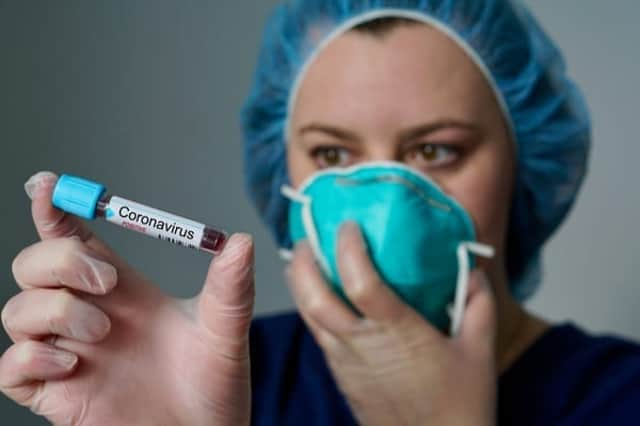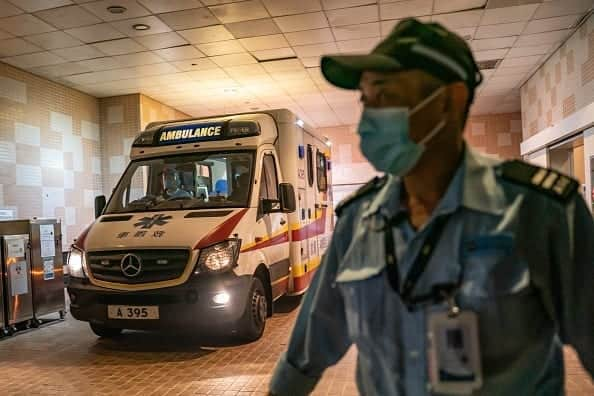Coronavirus in the UK - what to do if you think you have it


People who have returned to the UK after travelling to China have been urged to ‘self-isolate’, even if they show no symptoms of the virus.
Health Secretary Matt Hancock said health officials could not be 100 per cent certain the virus is not being spread by people who are not displaying symptoms, recommending people isolate themselves as a precaution.
Containing the spread


Advertisement
Hide AdAdvertisement
Hide AdMore than 70 people have now been tested for coronavirus in the UK, after the first cases were reported in Edinburgh last week (23 Jan).
All tests have so far come back negative, but officials have estimated up to 200 UK citizens are still waiting to return from China to the UK - posing a risk of spreading the virus.
The number of people killed by the virus in China rose to 81 on Monday (27 Jan), while almost 3,000 have been confirmed ill from the infectious SARS-like virus.
Prime Minister Boris Johnson said “we are doing everything” to screen people returning to the UK from affected regions.
Advertisement
Hide AdAdvertisement
Hide AdMr Hancock told MPs in the Commons: “Coronaviruses do not usually spread if people don’t have symptoms – but we cannot be 100% certain.
“From today (27 Jan), we are therefore asking anyone in the UK who has returned from Wuhan in the last 14 days to self-isolate.
“Stay indoors and avoid contact with other people – and contact NHS 111. If you are in Northern Ireland, you should phone your GP.
“If you develop respiratory symptoms within 14 days of travel to the area, and are now in the UK, call your GP or ring 111 informing them of your symptoms and your recent travel to the city.
Advertisement
Hide AdAdvertisement
Hide Ad“Do not leave your home until you have been given advice by a clinician.”
The number of people killed by the virus in China rose to 81 on Monday (27 Jan) (Photo: Getty Images)
A UK outbreak?
The strain of coronavirus is causing concern due to its connection to SARS (severe acute respiratory syndrome), which killed almost 650 people across mainland China and Hong Kong between 2002 and 2003.
This particular strain originated in Wuhan City, Hubei Province, the largest city in central China, with the first suspected cases of the virus were reported at the end of last year on 31 December 2019 in Wuhan.
Advertisement
Hide AdAdvertisement
Hide AdHowever, almost 50 cases of the virus have since been confirmed outside of China, including:
Thailand - eight cases
USA, Australia, Singapore, Taiwan - five cases
Malaysia, South Korea, Japan - four cases
France - three cases
Vietnam - two cases
Nepal, Canada, Cambodia, Sri Lanka, Germany - one case
So far, there have been no deaths from the virus outside of China.
UK health officials said the risk of outbreak in the UK is currently considered low, although the National Infection Service is working with the World Health Organisation, and other international partners, to keep the situation under constant review.
What to do if you think you have coronavirus
Dr Nick Phin, deputy director at the National Infection Service, Public Health England, has advised anyone who develops respiratory symptoms within 14 days of visiting Wuhan to seek medical attention, either in China or on their return to the UK.
Advertisement
Hide AdAdvertisement
Hide AdThose with suspected symptoms of the virus, which include a runny nose, headache, cough and fever, are warned to “phone ahead before attending any health services and mention their recent travel to the city”.
Anyone who may be travelling to Wuhan to “maintain good hand, respiratory and personal hygiene”.
Travellers are advised to avoid visiting animal and bird markets, as well as coming into contact with people who are ill with respiratory symptoms.
There are currently no vaccines to protect against coronavirus infection, but the Centers for Disease Control and Prevention (CDC) advise taking the following precautions to help reduce your risk of contracting it, and reducing the spread:
Advertisement
Hide AdAdvertisement
Hide Adwash your hands often with soap and water for at least 20 seconds
avoid touching your eyes, nose, or mouth with unwashed hands
avoid close contact with people who are sick